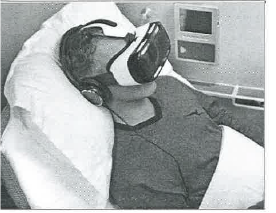Description:

The current state of the art
The market for Brain function monitoring is growing rapidly as a result of the increased incidence of neurological and neurodegenerative disorders. At a CAGR of 6.2%, the market is estimated to grow from USD 6.3 billion to 8.6 billion.
Problems with the current art
The current methods of monitoring brain function have restricted application. For example, the Glasgow Coma Scale (GCS) tests the patient’s consciousness to assess crude gross brain measurement and monitoring. An intracranial monitoring device, monitoring changes of intracranial pressure (ICP), is invasive. On the other hand, non-invasive methods such as traditional ultrasound are not sensitive to small and moderate changes of ICP.
A method that provides sensitive, non-invasive, and automated monitoring of brain function is lacking.
Advantages of our invention:
Scientist at AU developed a novel automated system and device that monitor brain function and changes in mass casualty environment, critical care transported of an injured patient and during surgical operations surgery. It utilizes stimulus and response sensors on the head of the subject and employs multiple test modals to calculate brain function score (GCS) or intracranial pressure changes. As a result, the system gives a rapid and sensitive reference as to the overall brain function. Data is graphically displayed, providing easy visualization and interpretation by a health care provider, enabling monitoring multiple patients simultaneously.
Provisional US62/728,175
Non-provisional Application US16/562,776
Application Date 09/07/2018
Lead Inventor: Matt Lyon, MD https://www.augusta.edu/faculty/directory/view.php?id=MLYON